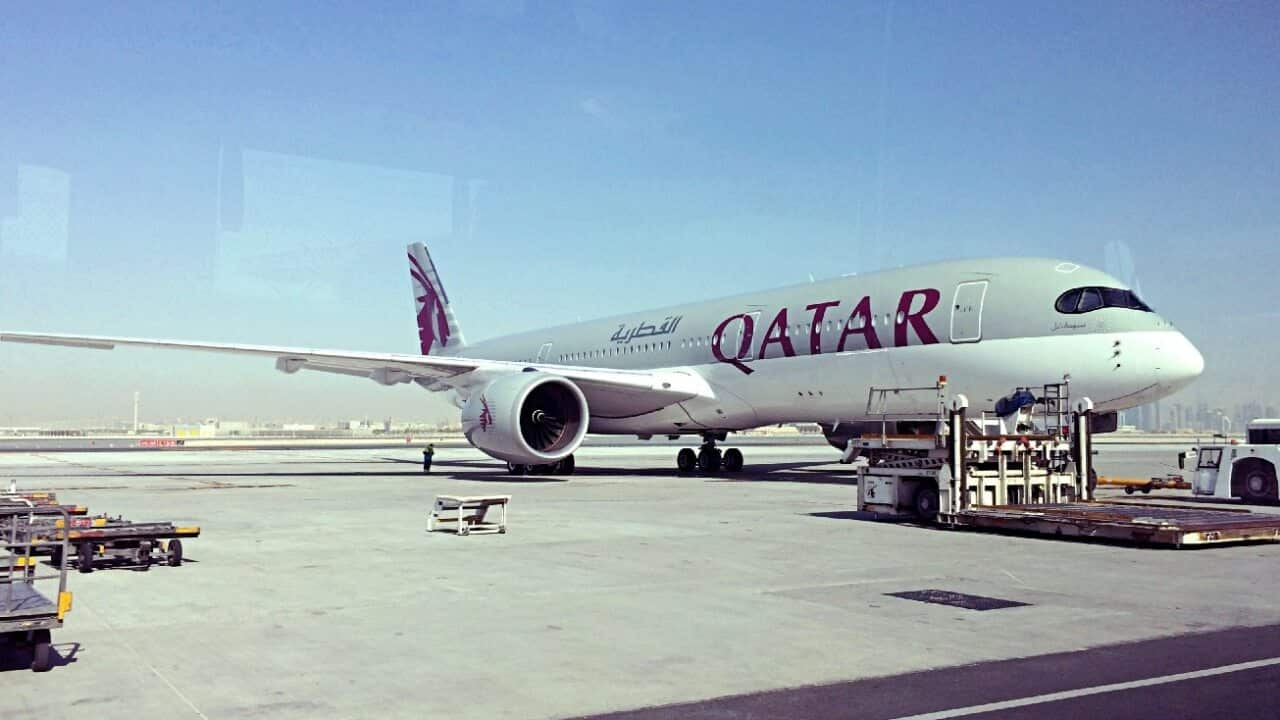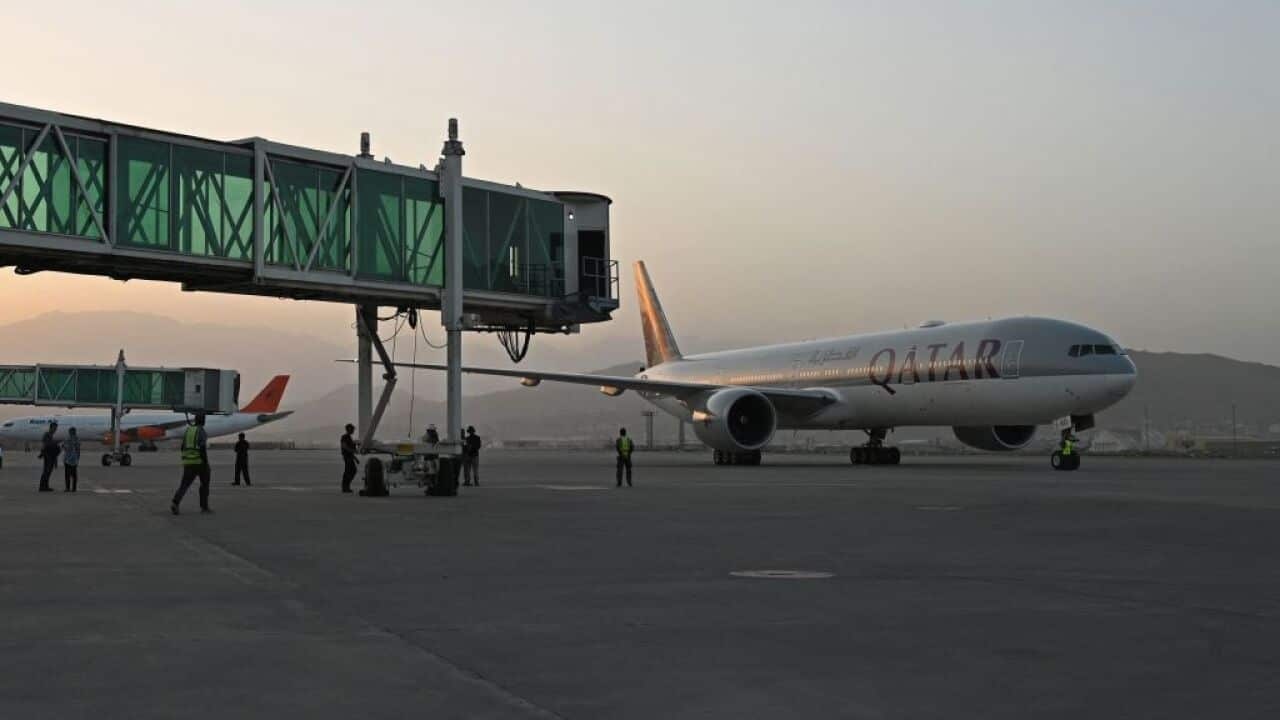Catherine, a French resident living in Australia, was one of 13 women forced to undergo intimate medical examinations while transiting in Doha after an abandoned newborn was discovered at the airport.
After being “ignored” in their quest for a personal apology, she and six other women in Australia are now threatening legal action against the Qatari government and Qatar Airways.
Highlights:
- In October 2020, 13 women were subjected to intimate medical examinations after an abandoned newborn baby was found at Doha airport
- Seven of the women are threatening legal action against the Qatari government and Qatar Airways
- 'More than a year later, the only thing we have received is disdain from this airline and this airport': Catherine*
Catherine remembers that night in October 2020 like it was yesterday. She had just left Paris and her plane was already rolling on the landing strip in Doha, heading to Sydney, when it suddenly turned around and went back to the gate.
“After nearly two hours of waiting, we were told we need to take our passports and disembark. And then some armed men, I don’t know if they were policemen or security guards, came on board and told us to follow them outside,” Catherine told SBS French.
She then realised only women had been removed from the cabin.
“As we were walking through parts of the terminal we hadn’t seen before, we were asking the guards what was going on, but they wouldn’t say a word. At this stage, I thought it was a terrorist attack at the airport and that maybe there was a bomb on our plane.”
Catherine and the other women from the flight were brought to a room facing the tarmac, where they could see several ambulances through the window.
“They told us a baby had been found in a bin at the airport and that to identify the mother they were going to conduct a gyneacological exam on us.
“I started panicking. The first lady who was taken to an ambulance came back just five minutes later and told us, ‘Don’t worry, it’s not invasive. They’re just going to touch your abdomen and it won’t last long’.
I didn’t really have a choice anyway, since they told us we’d have to do the exam before getting back to the plane.
Inside the ambulance, Catherine said she was met by a woman wearing a mask and doctor’s coat, who asked her to lie down on a bed, pull down her pants and lift her shirt.
“She started checking my abdomen and then moved down to my lower abdomen. I didn’t have to take off my panties. She touched but it wasn’t invasive. And finally she put her fingers under my bra. It took two or three minutes and the whole time I was holding my breath.
“If she decides that I am the mother of this child, what will happen to me? I’m travelling alone. If something happens, who can help me?”
Back on the plane, Catherine said she “probably hadn’t fully realised what had happened”.
“I should have already been very angry, but at that point, all I felt was relief. The plane was like this safe territory that would allow me to leave the airport.”
She also noticed some passengers, when coming back onboard, were crying. But during the flight, “no one talked. We were just exhausted and in shock”.
The conversation between the women who shared this ordeal only started in Sydney, in the bus taking them to hotel quarantine.
“We all have different nationalities, and we were all going to different parts of the country, so we created a Whatsapp group to keep in touch. During quarantine, some talked to their embassy or the police. Others also reached out to Qatar Airways but they never got a reply. The police, on the other hand, called us regularly, took our testimony and offered mental health support.” Catherine said she has gone through different phases of coping with the incident.
Catherine said she has gone through different phases of coping with the incident.

A file photo of a Qatar Airways Airbus A320-200 Source: Getty
“First it was denial. I didn’t want this event to affect me. Then it was astonishment. How could such a thing happen? And for the last few months, it’s been a great and growing anger. More than a year later, the only thing we have received is disdain from this airline and this airport, who never came back to us individually.”
When the story came out, it caused global outrage. While Qatar’s Prime Minister Sheikh Khalid bin Khalifa bin Abdul Aziz al-Thani did issue an apology, the women’s requests for an explanation and a personal apology were never answered.
Last week, Catherine and six other women living in Australia announced they would sue the Qatari government and Qatar Airways. They have set up a GoFundMe page to help finance their legal action.
“If we had been given an apology, a personal and sincere one, in the days or weeks after it happened, the story would have ended there. But this blatant disdain they have for us, it really pisses us off, we feel like we’re not even people. I can’t just move on, I think about it every day.”
For Catherine, it’s more than a matter of pride. Now in her fifties, she has travelled all over the world, on her own most of the time, without any worry. This isn’t the case anymore.
“The borders are finally open, and I can’t wait to see my family in France. But I’ve chosen not to travel, because I just can’t bear the idea of transiting through that part of the world. I’m scared.
“I’ve realised that in some parts of the world, you’re not an international passenger, protected by international laws. You’re just a woman, beholden by the laws of a particular country. So it scares me a lot, because Doha is a major hub between Europe and the Asia-Pacific region.
When I go back to France, I’ll have to find another route. Maybe I’ll go via the US. It’ll take longer. But I will never set foot again at Doha airport, or fly with Qatar Airways.
In recent years, Doha has become one of the busiest airports in the world. In 2019, it was used by nearly 40 million passengers. Its traffic could grow even larger next year, when Qatar will host the men's football World Cup.
Qatar faces renewed scrutiny over its hosting of football’s biggest tournament following serious allegations of corruption in the bidding process and multiple NGO reports claiming that more than 6,500 migrant workers have died building infrastructure ahead of the event.
*Name changed by request to protect identity

